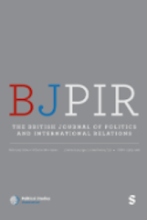Tax and public spending are central to electoral politics in many countries, and lie at the heart of the classic Downsian model of electoral choice, in which voters seek to maximize their expected utility through a rational evaluation of party programmes.
Since the 1990s, political parties in the UK and other Westminster democracies have frequently published costings documents alongside their manifestos, and Parliamentary Budget Offices (PBOs) and think-tanks (such as the Institute for Fiscal Studies) have taken on an increasingly prominent role in analysing party policies. The ‘Chartered Choices’ exercise carried out by the Centraal Planbureau in the Netherlands represents an even more ambitious attempt to integrate economic analysis into the electoral process.
Although the Dutch experience has attracted some scholarly attention, the wider implications of this trend towards ‘campaigning with numbers’ are not well understood. This project represents the first sustained attempt to develop a comparative framework for understanding how independent evaluation of fiscal promises shapes parties’ and voters’ behaviour in the real world. It aims to answer three questions:
- How and why do the forms of manifesto evaluation carried out by PBOs and think-tanks differ between countries?
- How have parties responded to the strategic challenges posed by (i) the expectation that policies will be ‘fully costed’ and (ii) the use of microsimulation and/or macroeconomic modelling to evaluate their programmes?
- How do voters understand the implications of party policies, the limits to government activity, and the trade-offs involved in tax, spending, and public borrowing?
The project will take a two-pronged approach to these questions. Firstly, I plan to convene an exploratory workshop which will bring together political scientists, economists, and contemporary historians to establish the current state of knowledge and map out a framework for comparative analysis. Secondly, I propose to carry out a detailed qualitative study of fiscal politics in the UK, Australia, and Canada since the 1980s in order to identify the distinctive ways in which policy costings shape parties’ and voters’ behaviour in Westminster democracies.
The proposed research will be grounded in empirical observation of how parties and voters engage with fiscal questions, including the implications of party policies for growth, wealth and income distribution, long-term sustainability, and cyclicality. It will build interdisciplinary collaboration around a major topic of public concern, and will help to inform a new MPhil course on Fiscal Politics in Westminster Democracies in the Department of POLIS. I think it is therefore firmly in line with the Keynes Fund’s statutory objectives.
Labour, more or less? Policy reasoning in a fiscal register.
Labour, more or less? Policy reasoning in a fiscal register, Sloman, P., The British Journal of Politics and International Relations, (2024) 26(1), 22-38.
Michael Jacobs and Andrew Hindmoor’s analysis of ‘Labour, left and right’ is a salutary corrective to ‘electoral-ideological’ accounts of party strategy in Britain, and rightly urges scholars to pay more attention to substantive ‘policy reasoning’. Jacobs and Hindmoor’s account of Labour policy is only partly convincing, however, because it is based on a sharp distinction between left-wing ‘structural reform’ and moderate ‘redistributive’ strategies which is difficult to justify historically, and understates the importance of social policy commitments to Labour’s positioning. This article argues that Labour’s policy trajectory since the 1980s is better understood through a fiscal lens, which reflects the importance of costings debates in UK general election campaigns and of Shadow Chancellors in opposition policy-making. Shifts in Labour’s positioning can thus be explained by looking at the interplay between the party’s economic thought, the leadership’s perception of its electoral needs, and the changing budgetary context.


